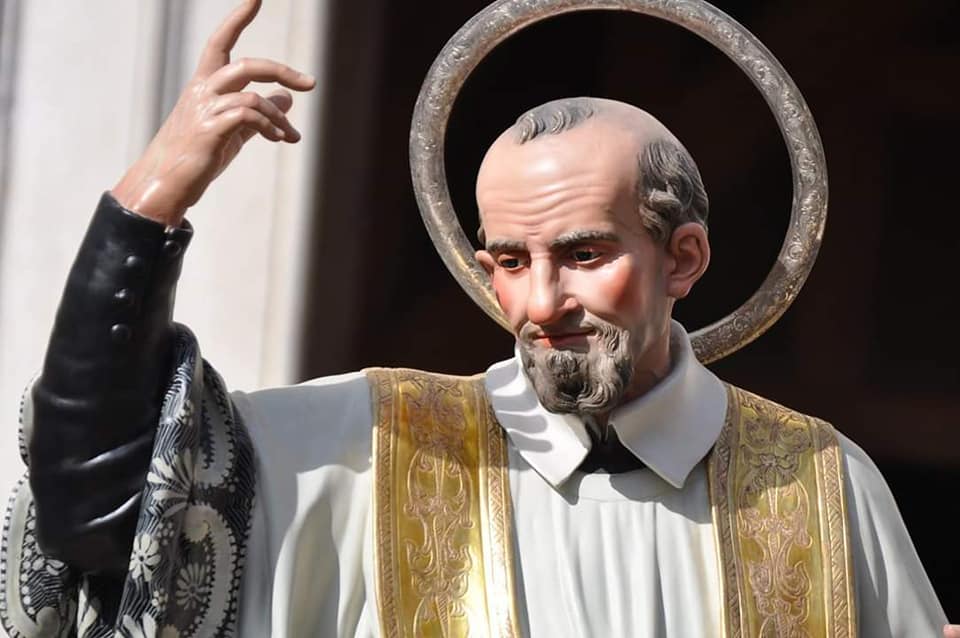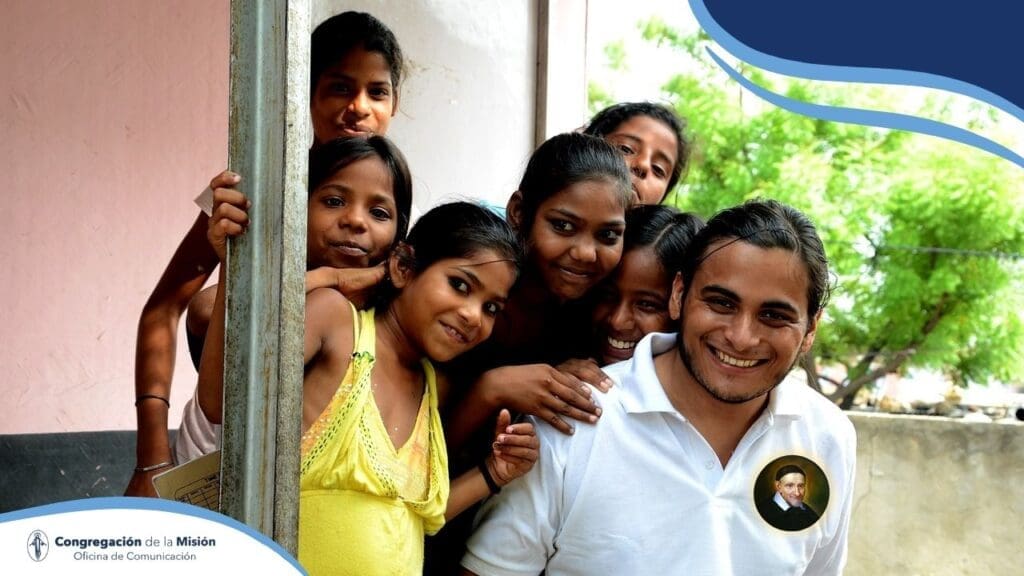St Vincent de Paul, who lived between 1581 and 1660, is an emblematic figure for anyone seeking to live a life based on charity, faith and love for the poor. His example, although belonging to a bygone era, is extremely relevant and offers valuable lessons for young people today.

Love for the Poor
St Vincent de Paul is known as the saint of charity, today defined by Tomaž Mavrič, CM, Superior General of the Congregation of the Mission: The Mystic of Charity.
At a time marked by wars, plagues and famine, Vincent never shied away from human suffering. His main mission was to care for the poor and marginalised, recognising in them the presence of Christ. His love for the poor was not limited to simple acts of charity, but manifested itself in a constant and concrete commitment to improve their living conditions.
An Encounter That Changed Everything
A significant episode in the life of St. Vincent de Paul occurred in January 1617, when he met a dying man in the estate of the Gondi family. This man, at the point of death, wished to confess and Vincent helped him to make a general confession. The dying man, freed from the burden of his sins, declared to Duchess Margherita de Gondi that, without this encounter, he would have gone to hell. This episode was a revelation for Saint Vincent. He realised how important it was for people to have access to confession and spiritual guidance. This encounter prompted him to start popular ‘missions’, preaching and offering sacraments in rural areas neglected by the official Church.
Faith in God’s Providence
Faith in God’s Providence was a cornerstone in St Vincent’s life. He firmly believed that God never abandons those who put their trust in Him. This conviction led him to face challenges with serenity and confidence, knowing that God would provide.
An emblematic episode is the miracle of the loaves and fishes, narrated in the Gospel of John. St Vincent saw in this story an invitation to trust in Providence. He was not concerned with multiplying bread, but with multiplying people’s generosity. He believed that if everyone gave what they could, Providence would do the rest.
Charity as a Way of Life
For St Vincent, charity was not just a Christian duty, but a way of life. His charitable work was extensive and included the foundation of the Daughters of Charity, a religious order dedicated to caring for the poor and the sick. This order, innovative for its time, allowed nuns to live an active life, without enclosure, and to dedicate themselves fully to the service of their neighbour.
St Vincent was convinced that charity had to be practical and concrete. It was not enough to love God in theory, one had to prove it with deeds, helping the weakest. This vision is summed up in his famous phrase: ‘Let us love God, brothers, let us love God, but at the expense of our arms, with the sweat of our brow. For very often so many acts of love of God, of complacency, of benevolence, and other similar affections and intimate practices of a tender heart, though very good and most desirable, are no less suspicious, when they do not come to the practice of actual love’.
Prayer as a Source of Strength
Prayer was the beating heart of St Vincent’s life. It was not just a moment of personal recollection, but a source of strength to face difficulties. His prayer was closely linked to action. Before undertaking any project, Vincent relied on prayer, asking God to guide and support him.
His deep spirituality made him an effective man of action. He did not simply quote the Scriptures out of duty, but because they were a source of inspiration and motivation for him. His ability to combine contemplation and action is a valuable example for young people today, who are often torn between spirituality and social commitment.

A Current Message for Young People
St Vincent de Paul is a contemporary model for young people. In a world where selfishness and indifference often prevail, his example of selfless love for the poor, his trust in Providence and his dedication to charity and prayer offer an alternative way forward.
Young people can draw inspiration from his commitment to build a more just and supportive society. They can see in him an example of how faith can be a powerful engine for social change. St Vincent teaches us that every small gesture of generosity can make a difference and that by relying on God, even the most difficult challenges can be overcome.
St Vincent de Paul is not only a historical figure, but a teacher of life who has much to teach young people today. His message of love, faith and charity is universal and timeless, and invites each of us to do our part to build a better world.
The story of the encounter with the dying man reminds us of the importance of being there for others in times of need. St Vincent did not just preach, but acted concretely, responding to people’s immediate needs. This practical approach is particularly relevant for young people today, who often seek tangible ways to make a difference in the world.
Charity as Concrete Action
St Vincent was a man of action. When he was in a village near Lyon in 1617 and heard of a family suffering from hunger and disease, he immediately organised the community to provide help. Not having sufficient resources, he appealed to the generosity of his people, who responded promptly. This episode demonstrates that charity is not just a sentiment, but a concrete commitment to one’s neighbour.
St Vincent’s determination was tested many times. After 1633, his charitable works grew considerably. He faced crises such as the abandonment of children and the ravages of war, but never gave up. During the Fronde, when Paris was plagued by hunger, the ladies who helped him were discouraged. Vincenzo motivated them with inspired words, reminding them of the importance of their commitment and trust in divine Providence.
A Master of Life
St Vincent de Paul shows us that charity, faith and prayer are powerful tools to transform the world. His example is a beacon for young people today, who can find in him a model of how to live a life dedicated to the service of others. His ability to combine faith and concrete action is a valuable lesson for anyone who wishes to make a difference in their community.
His life and works teach us that, with faith, charity and prayer, we can face any challenge and build a better world.
Girolamo Grammatico
Communication Office

